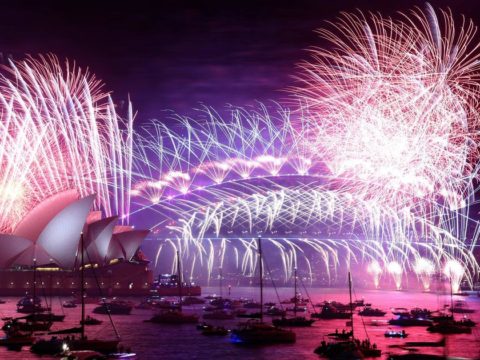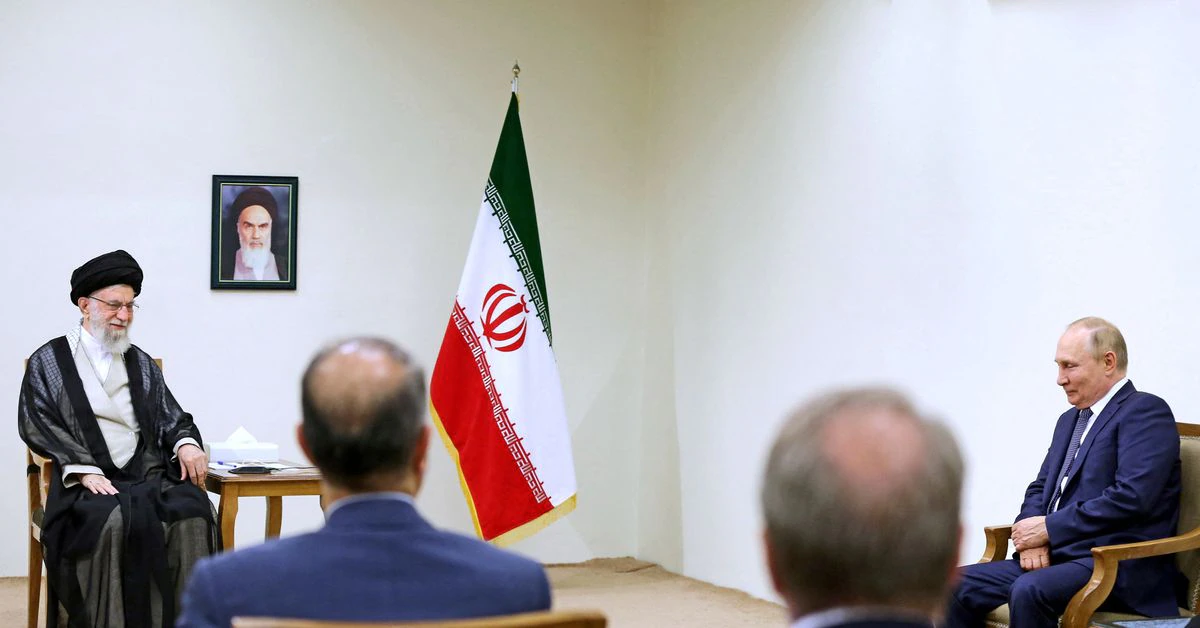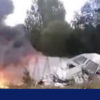
BRUSSELS — The European Union on Monday agreed to ban most imports of Russian oil, the harshest economic penalty yet imposed on Russia for its invasion of Ukraine, and potentially the biggest sacrifice by Europe, itself.
The deal is the latest and most far-reaching demonstration that over more than three months of war, in reaction to mounting Russian aggression and atrocities, European leaders have grown willing to take steps they considered too extreme when the invasion began. They have already barred imports of Russian natural gas, cut off Russian banks from global financial networks, frozen Russian assets and sent advanced weaponry to Ukraine.
After weeks of intense wrangling, E.U. leaders meeting in Brussels endorsed an embargo on Russian oil delivered by tankers, the primary method, with commitments to reduce imports by pipeline, according to a draft agreement seen by The New York Times. The deal was announced in a late-night tweet by Charles Michel, president of the European Council, though many details remain to be hashed out.
The endorsement came as a multipronged Kremlin assault closed in on the easternmost Ukrainian-controlled city, Sievierodonetsk. Russian forces continued their pattern of bombarding cities and towns, including civilian areas, reducing them to depopulated wastelands before attempting to seize control.
At the same time, Ukraine’s military mounted a counteroffensive to retake the strategic southern city of Kherson. And a car bombing in another Russian-held city, Melitopol, hinted at the kind of fierce resistance the occupiers may face.
President Vladimir V. Putin’s war machinery is financed by Russia’s sales of crude and refined petroleum and natural gas, which account for most of the country’s export revenue, collected primarily by state-controlled energy companies. With the war driving up prices, the European Union countries alone have been paying $23 billion a month for Russian oil.
Analysts say that Russia, offering discounts compared to the prices on world markets, will continue to find some buyers for its oil, but that sales volume and profits are likely to drop significantly once the embargo takes effect.
Europe relies heavily on Russian fuels — 27 percent of the crude oil imported to the European Union comes from Russia — and while E.U. countries are scrambling for alternatives, officials have warned that the financial cost to them will be high. Other sources are expected to be more expensive, if they can be arranged; gas and oil shortages are a real possibility.
The debate over an oil embargo has also exposed the potential vulnerability of the European bloc, just as Sweden’s and Finland’s requests to join NATO have shown fractures within that alliance. Diplomats express confidence that such differences can be resolved, but they offer reminders that the unity the United States and its allies have shown so far in opposing Russia is not guaranteed.
Hungary’s strongman leader, Viktor Orban, whose country depends more than Western Europe on Russian energy, had held up any agreement on an oil embargo, calling it an “atomic bomb” to the Hungarian economy.
The dispute illustrates how the E.U. practice of requiring unanimity among the 27 member nations for major decisions can become a weakness — particularly if Mr. Orban, who has a friendly relationship with Mr. Putin, is called on to take further steps to isolate Russia.
The limited embargo that European leaders endorsed was tailored to win Mr. Orban’s support. Prohibiting Russian oil deliveries aboard tankers would eliminate two-thirds of E.U. imports, while having no effect on Hungary, a landlocked nation. Arriving at the E.U. summit meeting on Monday, Mr. Orban said of the pipeline exemption, “It’s a good approach.”
Slovakia, the Czech Republic and Germany, which also receive Russian oil by pipeline, were expected to commit to weaning themselves from that source; Hungary is not expected to give any such assurance.
In NATO, which also operates by consensus, Turkey has blocked the admission of Finland and Sweden, which have been sufficiently alarmed by Russia’s war on Ukraine to abandon their long-held neutrality. Western diplomats predict that President Recep Tayyip Erdogan of Turkey, who has been as contentious a partner to NATO as Mr. Orban has been to the European Union, will wring concessions from the allies but ultimately accede.
On the battlefields of the eastern Donbas region, where Russia is focused on seizing more territory, the most intense combat is around the battered, adjacent cities of Sievierodonetsk and Lysychansk, among the most important remaining pockets of Ukrainian control. After weeks of shelling, Russian forces have fought their way into “the northeastern and southeastern outskirts” of Sievierodonetsk, the Ukrainian defense ministry said in a statement, adding that Russia had funneled still more war matériel from Russia into the Donbas.
Fighting across Donbas reached “maximum intensity,” said Col. Oleksandr Motuzyanyk, the defense ministry spokesman. He added, “Russian invaders shelled the entire front line, trying to hit our deep defensive positions with artillery fire.”
Amid reports of Russian war crimes against civilians, Ukraine’s deputy prime minister, Iryna Vereshchuk, issued a call to residents of Russian-occupied territory to flee however they can to Ukrainian-controlled areas, as millions already have. It is hard and dangerous, she conceded, but “ultimately, it is a question of your safety and that of your children.”
A French journalist was killed on Monday near Lysychansk when a shell exploded near the evacuation bus he was riding in, according to Ukrainian and French officials, and his employer, the television news channel BFM TV. The journalist, Frédéric Leclerc-Imhoff, suffered a lethal shrapnel wound to the neck, said Serhiy Haidai, the Ukrainian governor of the Luhansk region, who said the shell was fired by Russian forces.
At least seven other journalists have been killed while covering the conflict, according to Reporters Without Borders.
The sheer weight of Russia’s military and the brutality of its tactics have yielded territorial gains in the east, but it has suffered heavy losses, and Western analysts say it is running short of ready resources.
“Russia has likely suffered devastating losses amongst its mid and junior ranking officers,” the British defense ministry said on Monday in the latest intelligence update it has made public. Battalions that the Russians are cobbling together “from survivors of multiple units are likely to be less effective.”
Perhaps most ominous for Moscow, the British cited “multiple credible reports of localized mutinies amongst Russia’s forces.”
Hoping to spread Russian forces thinner than they already are, Ukraine over the weekend launched a counteroffensive more than 300 miles away from Sievierodonetsk, aimed at retaking Kherson, a strategic port on the lower Dnipro River in south-central Ukraine. It was the first major city to fall to the Russians, less than a week after the invasion.
“The Ukrainian counterattack does not appear likely to retake substantial territory in the near term,” the Institute for the Study of War in Washington said in an assessment released on Sunday, but it will disrupt Russian operations across the south, “and potentially force Russia to deploy reinforcements to the Kherson region, which is predominantly held by substandard units.”
In Melitopol, the Kremlin-appointed regional administration said a car bombing had injured two aid workers and called it “a terrorist attack aimed at destabilizing the peaceful life of the city.” People have protested the occupation in Melitopol, where Russian forces have kidnapped local officials and replaced them.
Ivan Fyodorov, the mayor of Melitopol — who was abducted by Russian forces and then returned to Ukraine in a prisoner swap — said he did not know who was responsible for the bombing, but predicted that “the ground will burn” in Melitopol until Russians leave the city.
Russian forces have held onto most of the areas they conquered in the south early in the war. But one band of fighters held out for weeks in a steel mill complex in the southern city of Mariupol, tying down significant Russian forces before the survivors surrendered this month.
And in the first weeks of the war, Russian offensives in the north aimed at Kyiv, the capital, and Kharkiv, the second-largest city, became hopelessly bogged down. Moscow gave up on those campaigns, at least temporarily, to concentrate on Donbas, and Ukrainians have retaken some of the lost territory.
The failure of those offensives and the resistance in Mariupol contributed to a shift in Russian tactics to a slower, more grinding approach, with little apparent concern for civilian casualties or physical destruction.
Describing the constant shelling of Sievierodonetsk, President Volodymyr Zelensky of Ukraine said in a video posted online on Sunday night, “They don’t care how many lives they will have to pay.”
Matina Stevis-Gridneff reported from Brussels and Richard Pérez-Peña from New York. Reporting was contributed by Matthew Mpoke Bigg and Marc Santora from Krakow, Poland, Valerie Hopkins from Kyiv, Neil MacFarquhar from Istanbul, Cassandra Vinograd and Stanley Reed from London, Carlotta Gall from Druzhkivka, Ukraine, Aurelien Breeden from Paris, and Monika Pronczuk from Brussels.















